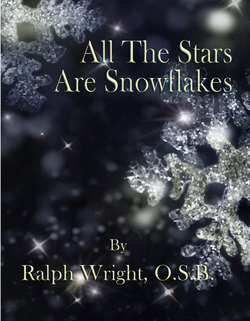Читать книгу All The Stars Are Snowflakes - Father Ralph Wright - Страница 3
На сайте Литреса книга снята с продажи.
ОглавлениеINTRODUCTION
In an interview of Joseph Brodsky by Jim Forest (“Commonweal,” 22 May 1992:7), the Russian poet stated “A poet is like a bird. He chirps no matter what twig he lands on— and mistakes the rustle of leaves for applause.”
The Benedictine poet Ralph Wright has landed on a number of twigs and his chirping deserves our listening and applause. He sings of snowflakes that populate our galaxies, of a neurotic squirrel whose claim to innocence is never successful, of Desert Storm and the wind’s ritual of reburial, of God as a social secretary who delights in surprises, of a flu bug’s encroachment on one’s ego, of icicles carrying one from St Louis to Palestine, of a coma patient held mercilessly from a compassionate God. ‘Tis a many branched tree with many fine songs.
Ralph Waldo Emerson offers a different metaphor to describe the poet: a lightning rod. “The poet, like the lightning rod, must reach from a point nearer the sky than all surrounding objects down to the earth, and into the dark wet soil, or neither is of use.” Ralph Wright risks the dangerous poetic vocation. His themes straddle the infinite and finite (see “All the Stars are Snowflakes” and “Dogma”),the ancient Greek dilemma of the one and the many (see “Fancy”), the revelation and concealment of God (see” O Deus Absconditus”). One of the tasks of poetry is to widen and deepen experience. This volume of verse does that and more: it also makes us ask once again the large questions of identity and destiny. Lightning rod indeed!
The prophets of the world have the duty of challenging us to justice and peace. Poets have a mission as well: to awaken us to truth and beauty, to darkness and sin, to our hopes and dreams. Given our tendency to fall asleep, a book of verse on the night stand serves the important function of keeping us attentive. Failure to adhere to the voice of our courageous prophets and to the vision of our noble poets leads to a diminishment of life, even at times to the loss of our humanity.
One last metaphor: “…when I see a tall pale snowstorm stalking through the fields and bowing at my window, I find I must translate my feeling into poetry.”(cf. William Luce’s “The Belle of Amherst”) Ralph Wright has felt the need to do some translations and we are the beneficiaries.
Robert Morneau, Auxiliary Bishop,
Green Bay, Wisconsin
